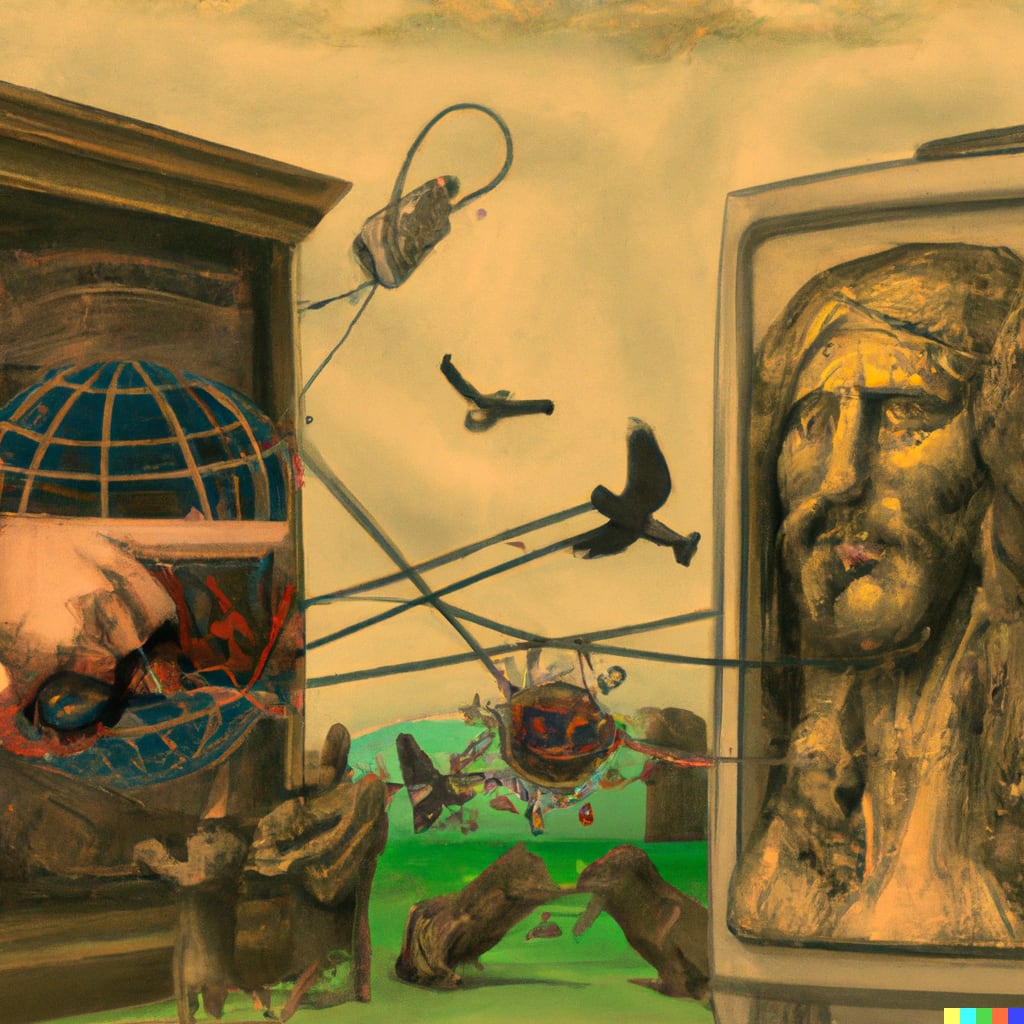The New Cold War: How the Internet is Fueling a Global Ideological Divide
Exploring the ways in which the internet is being weaponized to spread disinformation, sow division, and influence public opinion

The term "cold war" was first used to describe the political and military tension between the United States and the Soviet Union during the latter half of the 20th century. The two superpowers never engaged in direct military conflict, but they did engage in a prolonged struggle for global influence and ideological dominance. Today, a new cold war is emerging, one that is being fought not just between nation-states, but also within the virtual realm of the internet.
The internet has been hailed as a tool for democratization and connection, but it is also being used to fuel a global ideological divide. Nation-states, political groups, and individuals are using the internet to spread propaganda, sow division, and influence public opinion. Social media platforms, in particular, have become a battlefield for this new cold war, with actors from all sides using them to shape public opinion and influence elections.
One of the most significant ways in which the internet is fueling this new cold war is through the spread of disinformation. Disinformation is false or misleading information that is spread deliberately to deceive people. It has always existed, but the internet has made it much easier to spread, and much harder to detect. Social media platforms, in particular, have been used to spread disinformation on a massive scale. False information can be spread quickly and easily, reaching millions of people in a matter of minutes. This has led to a proliferation of fake news and conspiracy theories, which can have a significant impact on public opinion and political outcomes.
Another way in which the internet is fueling this new cold war is through the use of bots and automated accounts. These are computer programs that are designed to mimic human behavior on social media platforms. They can be used to amplify certain messages, create fake engagement, and sway public opinion. They can also be used to create the appearance of a groundswell of support for a particular candidate or political position. This can be incredibly effective in shaping public opinion and influencing elections.
The internet is also being used to fuel this new cold war by enabling cyberattacks. Nation-states and other actors can use the internet to launch cyberattacks against other countries, stealing sensitive information and disrupting critical infrastructure. This can have a significant impact on national security and can even be used as a tool of warfare.
The internet has also been weaponized to spread hate speech and sow division. Hate speech is any speech, gesture, conduct, writing, or display that may incite violence or prejudicial action against or by any individual or group, or because it disparages or intimidates a particular individual or group. Social media platforms have become a breeding ground for hate speech and hate groups. This can have a significant impact on social cohesion and can even lead to violence.
The internet is also being used to monitor and control populations. Nation-states are using the internet to monitor their citizens, track their movements, and control their access to information. This can have a significant impact on personal freedom and can even be used to suppress dissent.
In conclusion, the internet is fueling a new cold war, one that is being fought not just between nation-states, but also within the virtual realm of the internet. The democratization of information and connection that the internet has brought about is being used to spread disinformation, sow division, and influence public opinion. Social media platforms, in particular, have become a battleground for this new cold war, with actors from all sides using them to shape public opinion and influence elections. It is important for individuals to be aware of the potential negative impacts of the internet and to take a critical approach to the information they consume online. It is also important for governments and social media companies to take action to combat disinformation and hate speech, and to protect the privacy and security of their citizens. By taking a proactive approach, we can ensure that the internet remains a force for good in the world, rather than fueling a new cold war.





Comments
There are no comments for this story
Be the first to respond and start the conversation.